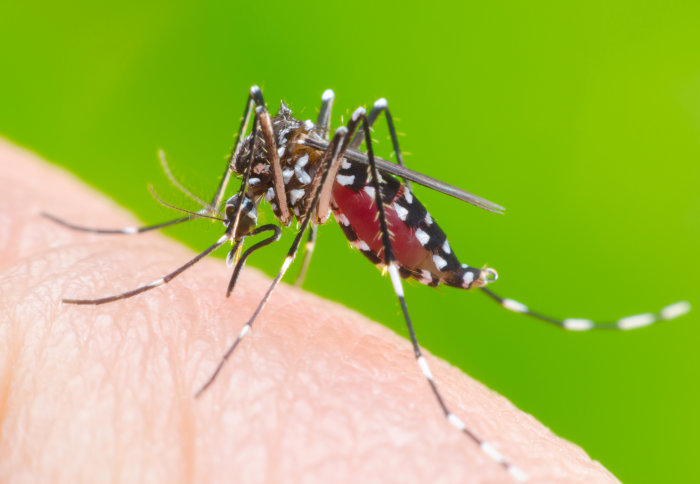Life & Health

As mosquitoes multiply in pools and puddles across southern and central Nepal, health experts are worried that the tiny insects could transfer dengue virus to more humans – just when Nepal is registering a new surge in Dengue cases.
Sukraraj Tropical and Infectious Disease Hospital in Kathmandu has been seeing a rise in the number of dengue cases of late.
At least six patients are visiting the hospital’s emergency daily, doctors said, adding that the hospital has currently admitted 15 patients infected with Dengue virus.
“The patients have come to the hospital with fever, body aches and nausea. Some of them have reached the hospital with severity such as accumulation of water in lungs,” said Dr Kijan Maharjan, physician at Sukraraj Tropical and Infectious Hospital.
According to a weekly report published by Epidemiology and Disease Control Division, 168 cases of dengue were reported this week. Of that, 50 cases were reported from Rupandehi, 32 from Kathmandu and 19 cases from Lalitpur.
Similarly, 18 cases were reported from Sindhuli, six cases each from Nawalparasi West and Kanchanpur. Dengue cases have also been found in Palpa and Makwanpur.
Mosquitoes
Dengue cases are usually reported after monsoon.
“The humidity and high temperatures are favourable for mosquitoes. Continuously changing weather – with a mix of sunny and wet weather conditions - give a favourable environment for the mosquitoes to breed,” said Dr Anup Bastola, senior consultant, tropical and infectious disease.
The country has seen a drastic rise in the number of dengue cases this year.
According to the EDCD, 1,126 cases of dengue were reported from across the country from January 2022 till August 16 from 60 districts.
A total of 264 cases have been reported from Lalitpur, with cases found in Thasikhel, Mahalaxmisthan, Godavari and Khumaltar. Kathmandu Metropolis has reported 85 cases from ward 15, 7 and 17.
Last year, in 2021, 540 people were infected with Dengue.
Movement a reason
Dengue is a viral infection transmitted to humans through the bite of infected mosquitoes. The primary vectors that transmit the disease are Aedes aegypti mosquitoes and, to a lesser extent, Aedes albopictus.
The virus is transmitted to humans through the bites of infected female mosquitoes.
To curb the number of coronavirus infections there were travel restrictions in and across the world.
“As the travel restrictions were there the number of dengue cases too were limited. But with the lifting of the restrictions across the world and inside the country people are moving. It has increased the number of cases,” Dr Gokarna Dahal, chief at vector borne disease control section, EDCD.
The indigenous mosquitoes get infected when they bite an infected person. Infected people are travelling. The mosquitoes bred from the infected ones too are infected,” said Dr Bastola.
Dengue causing mosquitoes generally grow in cities with improper waste management. They lay eggs in water deposited in discarded tyres, bottles and cans, in water collected in flower pots and air conditioners.
“As water gets accumulated in the discarded items, the mosquitoes start breeding,” said Dr Bastola.
The symptoms of dengue include high fever, severe headache, pain behind the eyes, pain in muscles and bones, rashes and back pain.
Experts warn that the number of cases can rise this year as the number of cases has already gone up compared to last year. Also the favourable environment for the breeding and growth of the mosquitoes play a role in the increase in the number of cases.
Preventive measures
- Use insect repellent
- Use mosquito nets
- Wear long-sleeved shirts and long pants
- Control mosquitoes inside and outside your home
- Using window and door screens
- If possible, avoid being outside at dawn, dusk, and early evening
- Remove any stagnant water around the home
Key Facts: WHO
- Dengue is found in tropical and sub-tropical climates worldwide, mostly in urban and semi-urban areas.
- The virus responsible for causing dengue, is called dengue virus. There are four dengue virus serotypes and it is possible to be infected four times.
- Dengue prevention and control depends on effective vector control measures. Sustained community involvement can improve vector control efforts substantially.
- While many dengue virus produce only mild illness, dengue virus can cause an acute flu-like illness. Occasionally this develops into a potentially lethal complication, called severe dengue.

_11zon1681280198.jpg)




